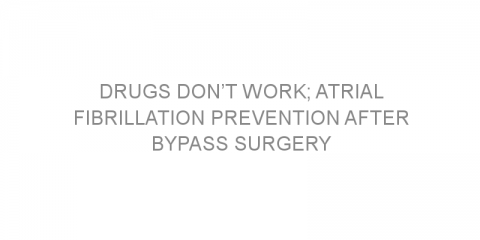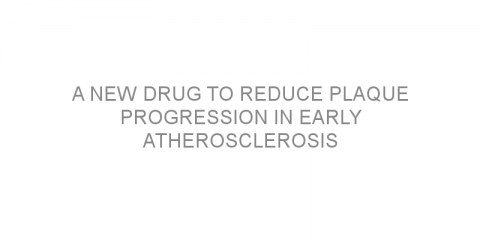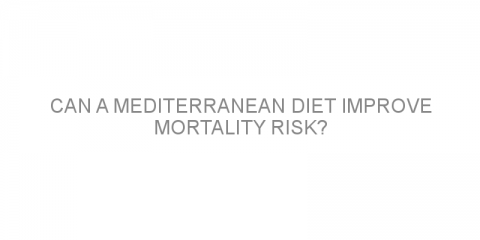Blood pressure measurement history Before the first sphygmomanometer, doctors put tubes in arteries to measure systolic blood pressure. Happily, in 1881 Samuel Siegfried Karl Ritter von Basch figured out a way to measure blood pressure in a less invasive way, using a rubber ball that restricted blood flow to the artery and attaching that to a column of...
Read MoreCoronary artery disease Posts on Medivizor
Is there a correlation between atrial fibrillation and heart attack?
In a nutshell This study examined the extent to which atrial fibrillation is a risk factor for heart attack. Some background Atrial fibrillation (AF), an abnormal rhythm of the heart where the atria (heart chambers that receive blood into the heart and drive it to the heart’s pumping chambers) quiver instead of beat is increasing...
Read More3D imaging may predict stroke
In a nutshell This study examined whether identification of changes in plaque composition in the carotid may be related to subsequent vascular events in a high risk population. Some background The carotid arteries are the main suppliers of blood to the brain. Carotid atherosclerosis is the most common of carotid...
Read MoreMasking the pain; a solution for obstructive sleep apnea
In a nutshell This study examined the long term effects of continuous positive airway pressure on blood pressure and prognosis in hypertensive (high blood pressure) patients with coronary artery disease and obstructive sleep apnea. Some background Obstructive sleep apnea is a common disorder characterized by repetitive partial...
Read MoreRenal Artery Denervation In Addition to Catheter Ablation To Eliminate Atrial Fibrillation
In a nutshell The objective of this trial is to determine the role of renal sympathetic denervation in the prevention of atrial fibrillation (AF) recurrence in patients with hypertension for whom a catheter-based AF ablation procedure is planned. The details Atrial fibrillation is the most common sustained cardiac arrhythmia (irregular or abnormal...
Read MoreDrugs don’t work; atrial fibrillation prevention after bypass surgery
In a nutshell This study compared the effectiveness of drugs for prevention of atrial fibrillation in patients that underwent coronary artery bypass grafting (CABG). Some background Coronary artery disease, characterized by narrowing of the arteries and disrupted blood supply to the heart muscle, is a leading cause of death...
Read MoreCoronary computed tomography angiography; a fortune teller?
In a nutshell This study assessed the predictive ability of coronary computed tomography angiography (CCTA) for major cardiac events (such as non fatal heart attack, death) over a long term follow-up in patients with suspected coronary artery disease. Some background Coronary artery disease, characterized by narrowing of the arteries and...
Read MoreA new drug to reduce plaque progression in early atherosclerosis
In a nutshell The authors aimed to evaluate the use of Atresantan, an Endothelin-1 receptor (ETA) inhibitor, in early atherosclerosis. Some background Endothelial dysfunction is when the thin layer of cells on the inside of blood vessels produce fewer proteins that cause the vessel to dilate or widen and more proteins that lead to...
Read MoreIs incomplete revascularization associated with decreased survival rates?
In a nutshell The authors evaluated the impact of incomplete revascularization on mortality (death) in patients receiving stents, particularly drug-eluting stents. Some background Studies using data from the era of drug-eluting stents have in general found that incomplete revascularization (incomplete restoration of blood flow) was associated with...
Read More9 Tips for Sharing Information with Your Doctor
How do you share information with your doctor? This is a tough question. If you have had a bad experience or if you have been afraid to even broach something new with your doctor, this is the post for you. We asked two patient activists how they talk to their physicians and they provided us with tips that can help when sharing information. From Patient...
Read MoreDo the adverse events associated with drug-eluting stents change over time?
In a nutshell The authors assessed the 5-year outcomes of two types of drug-eluting stents. Some background A drug-eluting stent is a scaffold that is inserted into a narrowed or diseased artery that slowly releases a drug in order to block cell division and growth. This prevents the development of fibrosis (thickening or...
Read MoreCan a Mediterranean diet improve mortality risk?
In a nutshell The authors assessed the association between a Mediterranean diet and mortality in patients with a history of cardiovascular disease. Some background The Mediterranean diet includes a high consumption of fruit and vegetables, a substantial intake of protein from plant sources (legumes and nuts) and a high intake of fats (mostly...
Read More












